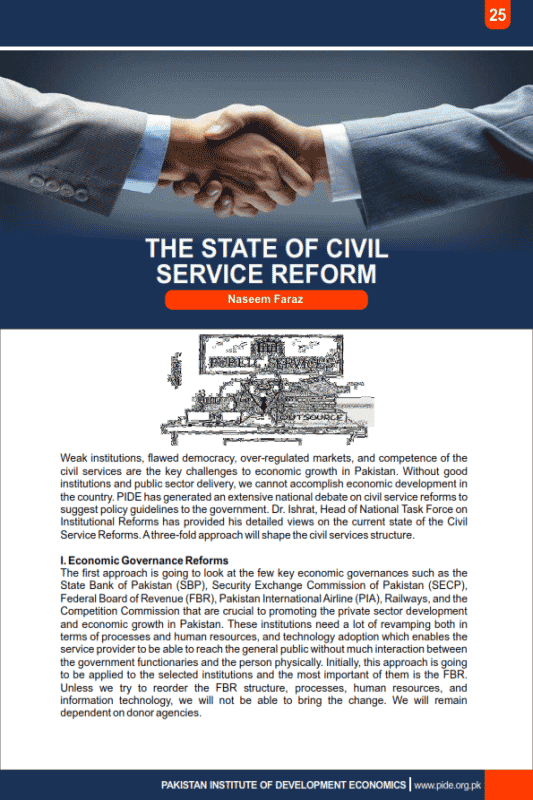THE STATE OF CIVIL SERVICE REFORM
Weak institutions, flawed democracy, over-regulated markets, and competence of the civil services are the key challenges to economic growth in Pakistan. Without good institutions and public sector delivery, we cannot accomplish economic development in the country. PIDE has generated an extensive national debate on civil service reforms to suggest policy guidelines to the government. Dr. Ishrat, Head of National Task Force on Institutional Reforms has provided his detailed views on the current state of the Civil Service Reforms. A three-fold approach will shape the civil services structure. I. Economic Governance Reforms The first approach is going to look at the few key economic governances such as the State Bank of Pakistan (SBP), Security Exchange Commission of Pakistan (SECP), Federal Board of Revenue (FBR), Pakistan International Airline (PIA), Railways, and the Competition Commission that are crucial to promoting the private sector development and economic growth in Pakistan. These institutions need a lot of revamping both in terms of processes and human resources, and technology adoption which enables the service provider to be able to reach the general public without much interaction between the government functionaries and the person physically. Initially, this approach is going to be applied to the selected institutions and the most important of them is the FBR. Unless we try to reorder the FBR structure, processes, human resources, and information technology, we will not be able to bring the change. We will remain dependent on donor agencies.




